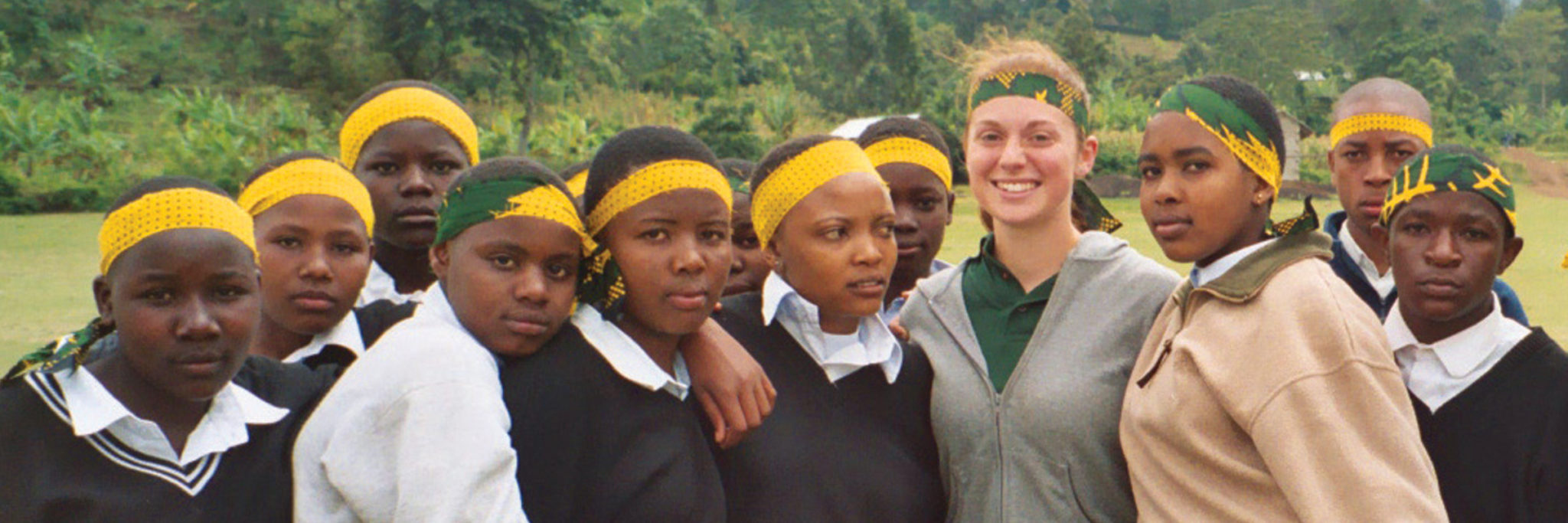“I get paid to provide what should be a basic human right,” a physician told Cora Walsh ’06 (Buffalo, Minn.) when she was in high school. This view has since become a moral and vocational compass for Walsh, who is already making an impact where help is needed the most. A pre-med student majoring in biology, Walsh spent the 2004 summer in Tanzania on an internship with the Global Service Corps and helped to design and implement an HIV/AIDS prevention program for secondary school students that took form in a three-week day camp. Walsh noticed a large gap between children’s knowledge of HIV/AIDS prevention and self-reported behavior, and that gap became the foundation for her interest in global health. “The children are aware of the risks and understand that condoms or even abstinence are the safest methods, yet their social and cultural mindsets disillusion the reality of HIV/AIDS,” she says.
As one of 75 students nationwide who received a Truman Scholarship last year, Walsh spent a week of last summer in Washington, D.C., working with a group to create a pilot student advocacy program for the Global Campaign for Microbicides. (Microbicides consist of a variety of vaginally applied products that will protect against sexually transmitted infections, including HIV. They’re currently in FDA phase III trials.) The group’s proposed pilot is now being integrated into the campaign’s U.S. organizing strategy and is also being considered for presentation at the 2006 International Conference on Microbicides in Cape Town.
All of these experiences dovetail with her senior honors thesis, in which she argues that biomedical approaches to HIV/AIDS will succeed only if consideration is given to socio-cultural issues that may impede prevention. Walsh is also exploring microbicides in her research because she believes “access to these products will be earth shaking for millions of women around the world who, due to a variety of social, economic, and cultural reasons, are unable to negotiate condom usage with their partners.”
From a broader perspective, Walsh believes “health is so often overlooked. I want to reach out and make connections across cultures and really help to raise the standards of living. Everyone should enjoy some basic level of health. I cannot ignore a basic human right.”

